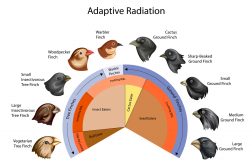Definition
noun, plural: antiserums, antisera
A serum containing immunoglobulins that act against specified antigens
Supplement
Antiserum is a serum that contains immunoglobulins from blood of human or animals inoculated with an antigenic material or from those that recovered from a disease when they naturally developed certain antibodies against particular antigens. It may be a monovalent (or specific) antiserum or polyvalent antiserum. A monovalent antiserum is a type of antiserum containing one specific antigen whereas a polyvalent antiserum is a type of antiserum with more than one antigens.1 Antisera are prepared to combat certain diseases. They are in particular used to provide passive immunity against diseases. An example of this was when there was an Ebola outbreak and those that survived from the disease served as source for passive antibody transfusion to another suffering the disease. The method of transfusion of antibodies into the diseased individual works when the antibodies in the antiserum bind to antigens. The binding of antibodies to the antigens stimulate the immune system to carry out a stronger immune response against the antigen.
Antiserum is also used as an antitoxin or antivenom to treat envenomation in individuals bitten by a venomous snake.
Synonym(s):
- immune serum
See also:
Related term(s):
- Antiserum anaphylaxis
Reference(s):
1 Antiserum. (n.d.) Farlex Partner Medical Dictionary. (2012). Retrieved from ://medical-dictionary.thefreedictionary.com/antiserum







